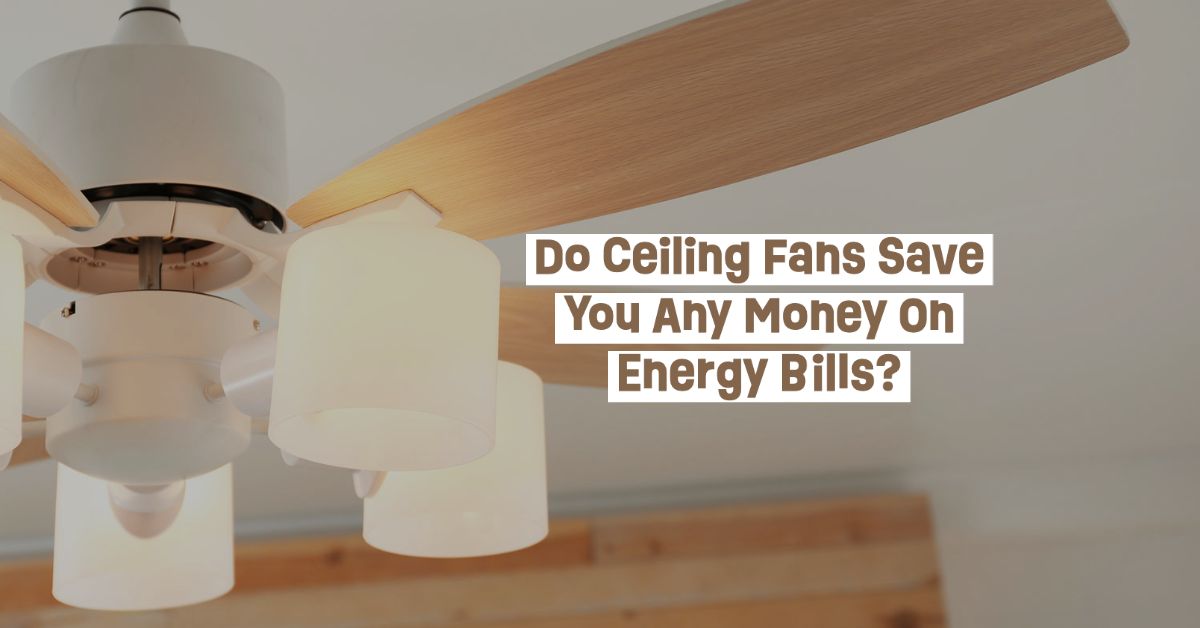“Do ceiling fans save money on electric bills?” is a question as old as time. Admittedly, that may be a slight exaggeration, but it holds some truth. A common belief is that turning on your ceiling fan will automatically result in drastic savings on your next energy bill. But your service professionals at Canal Winchester Heating & Cooling think it’s vital for you to understand precisely how a ceiling fan functions. Once this is achieved, you can effectively maximize your ceiling fan’s benefits.
How Do Ceiling Fans Work?
Ceiling fans are powered by electricity to promote circulation. This means that they do not lower the room temperature by cooling the air down; rather, they create a calming, cool effect formed by the air blowing on the skin.
Do Ceiling Fans Save Money On Your Energy Bill?
Theoretically speaking, ceiling fans can save you money on your bill. But this tiny fraction of savings will likely only be measured by mere cents. This is because the ceiling fan does not exist to lower the overall temperature of the room but rather promotes better air circulation, as stated above. It’s true that when in the vicinity of a ceiling fan, one can benefit from the wind-chill effect it produces. But unless you are physically in the room to reap the benefits thereof, you will simply be wasting electricity (therefore money), letting it run without anyone in the room. But don’t let that discourage you from using your ceiling fans. Used properly, ceiling fans can be advantageous.
What Are Some Way To Utilize Your Ceiling Fan At Its Highest Efficiency?
- Increase Your Thermostat Settings- When using a ceiling fan along with your air conditioner, you should raise the temperature on your thermostat to about five degrees or higher. Doing this can save you money on your energy bill, and you won’t feel the difference with the temperature being higher, as you can benefit from the cool effect of the ceiling fan being powered on.
- Use the Reverse Setting on Your Ceiling Fan In the winter- In the wintertime, you can switch the direction in which your ceiling fan rotates, pushing the warm air downwards. Keep in mind that not all ceiling fans have this option to change the rotation to a clockwise rotation, but many do.
- Consider an Energy-efficient Ceiling Fan- If you don’t already have ceiling fans installed in your home but are considering doing so, it would be wise to look into getting energy-efficient ceiling fans. Saving energy where you can adds up to increased savings. In addition, energy-efficient fans are said to circulate air 60% more efficiently.
- Dust Your Ceiling Fans Frequently- It is a good idea to get in the habit of frequently dusting your ceiling fan. The last thing you want is to be attacked by a small dust storm when you turn the power on.
- Don’t Let the Ceiling Fan Run without an Occupant in the Room- We want to reiterate the importance of only turning on your ceiling fans when someone is physically in the room. Otherwise, you are just wasting electricity, and no one benefits from the circulated air.
Ceiling fans work best when utilized properly. They can be helpful tools in addition to your home’s air conditioning system. However, remember that when employing a ceiling fan in your home, you may not see a significant difference in your energy bill. So, yes, you can save some money on your energy bill; it just won’t be a massive amount of savings.
If you have any other questions about your residential HVAC system or want to know about different ways to reduce energy consumption, please don’t hesitate to reach out to Canal Winchester Heating & Cooling family. You can reach us at (614) 524-4737 or schedule an appointment online now by clicking here!







